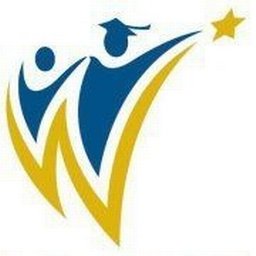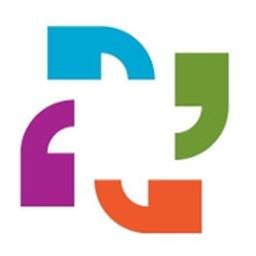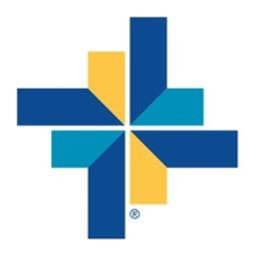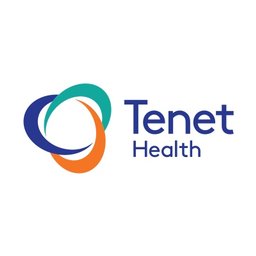Special Education
Under supervision, works in a special education classroom assisting teaching staff in a variety of instructional activities. Assists teachers in special education classrooms and provides individual or group assistance depending on student or class's functional living and academic skills and/or behavioral support needed. Incumbent can also provide attendant services to students with various intellectual and/or physical disabilities. Incumbent performs related work as required.
The Paraeducator Aide II works in a special education classroom assisting the teacher and/or a special education student within the general and/or special education classroom, in specific specialized programs such as: CLS (Comprehensive Life Skills), EC (Early Childhood), MA (Multi-Age), SIP (Social Intervention Programs), Strategies (Autism Spectrum Disorders), Social Resource and/or Resource classrooms as well as one-on-one assistance. Additionally, a Paraeducator Aide II working at a Title I school must be highly qualified.
May act as liaison between general education teachers, resource teachers; previews instructional information when possible and may attend seminars and conferences.
Paraeducator aides may be assigned to a variety of special education programs or individual students who require adult support based upon their IEP's (Individualized Education Program). Duties may include: assist students with intellectual, physical, or behavioral disabilities in boarding and de-boarding buses before and after school; assist students in reaching proper location in school; accompany students into general education classrooms; provide attendant services (diapering, toileting, washing faces, etc.) to students as needed; supports instruction in proper health and hygiene habits; performs delegated procedures such as clean intermittent catheterization, provide emergency and first aid care as necessary; move students weighing 50-80 pounds, daily and repetitively; follows proper safety procedures; prepares and helps feed students as needed; supports instruction in functional life skills; realizes individual needs of students with intellectual, physical and/or behavioral disabilities and modifies general education classroom assignments occasionally; follows behavior plans as outlined in students' IEP's; uses positive behavior management techniques; assists with lesson assignments; reinforces learning concepts to students; maintains discipline and order on the playground, lunchroom, library and classrooms; accompanies students on field trips; arranges and adjusts wheelchairs, oxygen hoses and other equipment as needed; communicates with special education teachers about concerns and/or observations of students; assists in maintaining bulletin boards in the classroom; may assist children with medication when trained; assists in the operation of classroom equipment or students' assistive technology devices; assist in recording student progress towards goals and developing instructional materials and preparing graphs and charts; assists in modification of the general education curriculum; participates in district training programs when requested and receives training in and implements non-violent behavioral intervention procedures; maintains confidentiality regarding student information and records.
When assigned to SPED Programs:
The
Early Childhood Special Education Program provides services to three, four and five year olds with disabilities. This program consists of developmentally appropriate curriculum that addresses all areas of child development including literacy and math readiness skills, gross and fine motor skills, self- help skills, communications skills, and social skills. In addition, the classroom provides multiple opportunities to develop skills in the areas of cognition, receptive and expressive language, and social/emotional development.The Early Childhood SIP Program provides developmentally appropriate curriculum that addresses all areas of child development including literacy and math readiness skills, gross and fine motor skills, self- help skills, communications skills, and social skills. The program focuses primarily on social emotional development and primarily serves students with behavioral challenges in a small group setting. When assigned to an EC SIP classroom, a combination of EC & SIP practices are followed. The descriptions mentioned for EC and SIP respectively should not be construed to believe that only one or the other will be followed. A combination of practices of both are followed to best suit student needs.
The Early Childhood Strat Program provides developmentally appropriate curriculum that addresses all areas of child development including literacy and math readiness skills, gross and fine motor skills, self- help skills, communications skills, and social skills. The program focuses primarily on the development of communication and social emotional skills using a variety of strategies. The EC Strategies Program serves students with deficits in these areas, usually caused by Autism. This program also provides?a small group setting and focuses on extensive data collection to document progress. When assigned to an EC Strat classroom, a combination of EC & Strat practices are followed. The descriptions mentioned for EC and Strat respectively should not be construed to believe that only one or the other will be followed. A combination of practices of both are followed to best suit student needs.
The Early Childhood inclusion model program provides services to three, four and five year olds who are receiving specialized instruction with typically developing peers in a developmentally appropriate classroom. This inclusion program provides an age appropriate environment that offers all children a wide range of learning opportunities. This program consists of developmentally appropriate curriculum that addresses all areas of child development including literacy and math readiness skills, gross and fine motor skills, self- help skills, communications skills, and social skills. In addition, the classroom provides multiple opportunities to develop skills in the areas of cognition, receptive and expressive language, and social/emotional development.
The SPED IK Program provides developmentally appropriate curriculum in a co-teaching model that addresses all areas of child development including literacy and math readiness skills, gross and fine motor skills, self- help skills, communications skills, and social skills along with kindergarten standards and curriculum. Services are provided in a kindergarten setting.
Social Intervention Program (SIP) classrooms provide a system of support - both academic and emotional/behavioral - for students with significant emotional/behavioral needs within the regular school setting.
SIP is a program, not a place, which incorporates a range of settings, from self-contained classrooms to full-inclusion within general education classrooms, with behavioral support (it is an IEP team decision what the least restrictive environment is for each child).The goal of
SIP is to help children acquire and develop effective, prosocial behaviors so they can be successful in regular classroom settings, and to support the children to make adequate academic progress. Students are given work at their developmental levels and the WCSD adopted curriculum and texts are utilized. The primary goal is to extinguish behaviors that are impeding students' ability to be successful in the general education classroom, and to provide positive replacement behaviors, so that students can return to the general education classroom.The SIP has as its framework, a structured behavior management program that includes frequent positive reinforcement, with consistent consequences, to shape appropriate school behaviors, such as staying calm, following instructions, etc.
(Designed to support students who may be on the autism spectrum) Program provides systematic, intensive instruction focusing on the following areas: receptive/expressive/pragmatic language, functional routines, pre-academic/academic skills, play concepts, social skills, fine/gross motor skills, and socially acceptable and functional behaviors. Highly structured and predictable instruction occurs in a small-group setting with a high adult-student ratio utilizing discrete trial teaching of academic, functional, and social skills. ?Visual supports, augmentative and alternative communication tools, positive behavioral supports, inclusive practices, and data-based decision-making with a focus on generalization and maintenance of skills and maximum student independence are used.
Program provides special designed social skills curriculum emphasizing development of social thinking and social coping skills through systematic, coordinated, methods including visual supports, modeling, role-playing, and a considerate environment for sensory needs.? In addition, instruction specifically addresses individual student behavioral targets that interfere with participation in general education settings.? Program components include: language/communication development, school-wide success skills, structured social interaction, focus on transition to general education environment, organizational skills, bullying prevention, positive behavioral supports, and related services as determined by the IEP. ?
Demonstrates knowledge of characteristics of students who are Deaf/Hard of Hearing; assists students with Hearing Impairments to access curriculum; utilizes appropriate questioning and discussion techniques based on student's modality of learning; demonstrates skill and knowledge of current technology practices relative to students who have hearing impairments; knowledge of and ability to effectively utilize, access and maintain necessary technology and equipment needed, and assist students with hearing impairments within classroom instruction and activities as well as other curricular access, ability and/or knowledge to use all technologies and modalities which may be required to perform requirements of the position, and be capable of providing the type of communication services required for the person who is deaf or whose hearing is impaired.
Students serviced may include students who are blind or partially sighted, those with multiple impairments or students with deaf-blindness. Assists with student needs to include adaptations to learning materials, learning environment and learning strategies. Supports to ensure that student has access to their developmental or academic curriculum as well as Expanded Core Curriculum. Supports students in UEB braille, Nemeth Code, music braille, etc. and/or low vision skills and strategies, and assistive technology. Supports instruction in environmental and community awareness. Assists with preparing and cataloging various instructional materials.
Education/Experience: Any education and experience that would provide the required knowledge and skills is qualifying. A typical way to obtain the knowledge and skills would be:
- Any experience that would demonstrate the ability to successfully perform the duties and responsibilities.
Knowledge of: Educational principles and techniques; student behavior and characteristics; basic discipline and positive behavior modification techniques; correct English usage, spelling, grammar and punctuation; basic mathematics; current office methods and procedures including filing and records management; common office equipment and its usage; and some knowledge in communication and behavioral strategies. May need to possess various forms of communicating with the deaf through visual means (Signed English, SEE, MSE, PSE, ASI, or CUE); hearing disorders and their effects on learning and behavior; skills taught in the basic subjects included in elementary and secondary school curriculum; record keeping techniques; and computer skills.
Skill at: Securing and maintaining the confidence and cooperation of students; dealing tactfully with students, parents and school personnel; evaluating situations accurately and taking effective action; basic typing/computer skills; spelling correctly; reading, writing and speaking English at a level required for successful job performance; preparing and maintaining accurate and complete records, files and summaries; organizing and distributing instructional materials; making mathematical computations; operating various office equipment; operating and maintaining audio-visual equipment; learning basic operations of communication devices; lifting using appropriate techniques; understanding and carrying out oral and written instructions; using positive behavioral reinforcements; establishing and maintaining effective working relationships with those contacted in the course of work; and moving students weighing as much as 50-80 pounds, daily and repetitively.
Licenses/Certificates: Possession or ability to obtain a CPI Certification.
The Paraeducator Aide must also be at least 18 years of age; have at least a high school diploma or a general equivalency diploma;
The Washoe County School District is committed to providing a safe and respectful learning and working environment for all students, staff, and visitors.? The District prohibits bullying, cyber-bullying, harassment, sexual harassment, and/or discrimination based on an individual's actual or perceived race, color, religion, sex (including pregnancy), national origin, age, sexual orientation, gender identity or expression, genetic information, veterans or military status, marital status, disability or the presence of any sensory, physical or mental handicap in any of its educational programs/activities and employment, or in any program or activity conducted or funded by the U.S. Department of Agriculture. The District prohibits discrimination against any youth group listed in Title 36, as a patriotic society, (i.e. Boy Scouts of America) from access to public school facilities use.
Sch A:$13.42 (entry step)
Sch B:$16.13 (entry step)
Salaries are subject to adjustment and may increase and decrease each fiscal year. New employees hired by Washoe County School District are normally placed on the entry step of the grade of the position. View the salary schedules here.
- No waiting period on Medical, Dental, Vision and Life Insurance
+ Employees may select an insurance plan wherein WCSD contributes 100% of insurance premiums.
- Sick Leave, Holiday Pay and Vacation Pay
- Public Employees Retirement System (PERS)
+ Contribution options will be explained in detail during the New Employee Orientation.
- Salary Increases
- Longevity Bonuses
- Guidance Resources
- And More - Visit our Benefits page for more information.
Temporary employees working less than 6 months do not receive benefits.
Any applicant who would like to request a reasonable accommodation in any step of the selection process should contact Human Resources at (775) 348-0321.
Salary
Hourly based
Location
NV , United States NV, United States
NV , United States NV, United States















